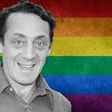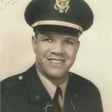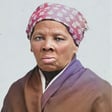Become a Creator today!Start creating today - Share your story with the world!
Start for free
00:00:00
00:00:01

Sara Josephine Baker
To end Gay pride month 2025, Sam tells the story of Sara Josephine Baker. Baker was an American physician notable for making contributions to public health, especially in the immigrant communities of New York City. She also happed to be part of the Queer community. Her fight against the damage that widespread urban poverty and ignorance caused to children, especially newborns, is perhaps her most lasting legacy. In 1917, she noted that babies born in the United States faced a higher mortality rate than soldiers fighting in WW1, drawing a great deal of attention to her cause. She also is known for (twice) tracking down Mary Malone, better known as Typhoid Mary.
Sources:
https://www.harvardsquarelibrary.org/biographies/sara-josephine-baker/
Transcript
Opening Banter: Weather Talk
00:00:19
Jeff Rogers
Well, hello, Sam. Hi, Jeffrey. How are you? I'm good. How are you? I'm loving the thunder that we have outside right now. It's confusing me. I mean, it's good. It's like that deep, booming thunder. Unless we're both crazy and it's just like a construction truck. Which could be the case. Very much so.
00:00:35
Jeff Rogers
But, you know, if you trust your weather app, which I do implicitly because they're always right. But what's crazy is we just recorded the last show and it was 98 degrees outside and sunny.
00:00:46
Jeff Rogers
Bright sun. I mean, so much sun. And now there's thunder. And clouds. Interesting. Within an hour. Maybe that's because of your story.
Pride Month Story Introduction
00:00:56
Jeff Rogers
Yeah.
00:00:57
Jeff Rogers
It was a gnarly one. Gnarly? It was gnarly. Did you say gnarly? It was gnarly. That's as bad as me saying groovy. and Groovy. um So this is our little sticky note on Monday, which is kind of a short little gift that we give to you A gift.
00:01:12
Jeff Rogers
Which you're going to rate us and review us. Give us five stars. And Sam is going to finish out gay pride month. with a story from the community.
00:01:24
Jeff Rogers
From the community. um Yeah, just a quickie. um It is the last day of Pride Month, so even though this is normally our Happy Mondays, this it doesn't necessarily fall into the category of one of those like uplifting, crazy, good stories. It's just an informational one.
Who was Dr. Sarah Josephine Baker?
00:01:40
Jeff Rogers
um So Sarah Josephine Baker, a.k.a. Joe, was born in Poughkeepsie, New York in 1873 into a wealthy Quaker family.
00:01:52
Jeff Rogers
Her father was Daniel Mosher Baker, who was a prominent and very well-liked lawyer. Her mother was Jenny Harwood Brown, one of the first ever graduates of Vassar College.
00:02:04
Jeff Rogers
Oh, wow. So with successful parents like that, she had no choice but to excel. Wait, her mother graduated Vassar. Mm-hmm. Wow. Mm-hmm. In the Okay. Okay. Yeah.
00:02:16
Jeff Rogers
Yeah. um So, yeah, she had she had to be great yeah at whatever she did. Yeah. um However, when she was only 16 years old, her father and brother died suddenly and unexpectedly from typhoid fever.
00:02:29
Jeff Rogers
Oh, after their deaths, she taught herself chemistry and biology. And then she surprised everybody when she gave up her Vassar scholarship to go to medical school.
00:02:40
Jeff Rogers
There were many people who were mortified that she was taking this path because there were very few female physicians at the time. In 1894, she joined the Women's Medical College of the New York Infirmary.
00:02:55
Jeff Rogers
The school had been found by Elizabeth and Emily Blackwell in 1868. I think I talked about Blackwell in of my previous episodes. She studied with extraordinary female physicians and took advantage of all of the opportunities that it provided.
00:03:10
Jeff Rogers
She became the first female to graduate from the school with a doctorate. Damn. After graduation, she was granted a year-long internship at the New England Hospital for Women and Children in Boston in 1898.
00:03:24
Jeff Rogers
Again, let's go back to the fact that all these names, like when was doing the Florence Nightingale, just shorten the names of these schools and these places. It's a lot of words.
How did Baker's Career Unfold?
00:03:35
Jeff Rogers
During this internship, she began to fully understand the connection between poverty and poor health.
00:03:40
Jeff Rogers
The experience she had with public health became a passion that came to define her medical career. In 1899, Dr. S. Josephine Baker opened a private practice in New York while working as a medical examiner and medical inspector to help cover the costs of her practice.
00:03:59
Jeff Rogers
Dr. Baker was given the job of Assistant Commissioner of Health in 1907. During this part of her career, she worked many high-profile cases. She worked on the smallpox vaccination and was instrumental in identifying typhoid Mary. Huh.
00:04:16
Jeff Rogers
As we learned last week on the episode, the case involved a cook, Mary Milan, who had worked in many New York homes and unwittingly caused a typhoid epidemic in the city. When she was identified and located in her home, she had no desire to cooperate and her Irish spirit came out.
00:04:32
Jeff Rogers
Because Joe was a woman, she was tasked with pinning Mary down on the way to the hospital. In her own words, she said, i literally sat on her all the way to the hospital.
00:04:42
Jeff Rogers
It was like being in a cage with an angry lion. The fighting Irish. Yikes. The fears that arose from this well-known case led to the demand for public health programs designed to address the, quote, hidden health dangers and improve the standards of hygiene.
Baker's Innovations in Public Health
00:05:01
Jeff Rogers
In 1908, as the director, the first woman in the history of the U.S. to hold an executive position in a health department for the new Bureau of Child Hygiene, which was the first agency of its kind in the U.S., s
00:05:15
Jeff Rogers
She developed programs for midwife training, basic hygiene and preventative care. Over the next few years, she created a city funded well baby stations and the the little mothers leagues, which was a program that trained girls 12 and older to care for infants.
00:05:33
Jeff Rogers
The benefits for the family economy were extensive. By training these young girls to appropriately care for their infant and younger siblings, it allowed the mothers to go back to work without their children suffering from neglect.
00:05:46
Jeff Rogers
parts of this initiative ah Part of the initiative was the creation of a safe infant formula that allowed for nutritional supplementation while the mother was working. She also created an eye drop system to prevent blindness in newborns exposed to gonorrhea.
00:06:03
Jeff Rogers
Huh? That's amazing. Like the things that we, that's incredible, right? Yeah. She was inspired to address these factors and areas because she said, quote, it was more dangerous to be a child in hell's kitchen than it was to be a soldier on the front lines of world war one as their mortality rate was three to six times higher. hit Wow.
00:06:28
Jeff Rogers
Yeah. I mean, just like, You look at the passion that she took from an internship, right, where she worked for public health and she she notices this trend and she goes, that doesn't make sense to me. It shouldn't be that way. Let's fix it.
00:06:41
Jeff Rogers
She creates all this stuff, right? So her work with the Bureau was part of the foundation of social medicine. She promoted health education in the immigrant communities, distributed milk to children, and created a school health program that was replicated 35 states.
00:06:58
Jeff Rogers
damn. Right? She just keeps going and going and going. For many years, Dr. Baker lectured at the New York University Bellevue Hospital Medical School. And even after her retirement, she remained highly active on multiple medical committees, including the League of Nations.
00:07:15
Jeff Rogers
Upon her retirement in 1923, New York City had the lowest infant mortality rate of any major American city. Because
Baker's Personal Life and Philosophy
00:07:25
Jeff Rogers
of her. Like, almost single-handedly because of this woman.
00:07:29
Jeff Rogers
Because of her work, she was frequently in positions supervising staff that included many male physicians. Most of the male physicians at the time were skeptic s skeptical of women in medicine. As a way to ease their discomfort, she tended to lean her wardrobe in such a way that mini andna minimized her femininity.
00:07:47
Jeff Rogers
She wore man's tailored suits, stiff collars, and ties. Mm-hmm. Her style made her male colleagues so comfortable that they even sometimes spoke to her about the deficiencies of female practitioners, forgetting that she was one.
00:08:03
Jeff Rogers
Although she never never publicly had a coming... She was so smart to do that. Yeah. And I mean, yeah. I mean, among the other things that she did, that was and and she was incredible.
00:08:15
Jeff Rogers
But just this one little aspect, yeah just to make the men comfortable. Yeah, so that she can continue doing her work, right? So that she wasn't shunted to the side. and um So she never had a public coming out, um but everybody knew that she had a relationship, ah a relatively long relationship with um writer Ida Alexa Ross Wiley.
00:08:38
Jeff Rogers
As a couple, they joined the Heterodoxy Club, which was a lunch group made up of feminist women with many lesbian or bisexual members. Known for the progressive and intellectual environment, the women were able to speak more freely and share ideas.
00:08:53
Jeff Rogers
After her retirement from medicine, Baker and Wiley together moved to a farm in New Jersey where they lived with another physician named Louise Pierce until Baker's death in 1945. And a quote from one of her books, Fighting for Life, she said,
00:09:08
Jeff Rogers
The way to keep people from dying from disease, it struck me suddenly, was to keep them from falling ill. Healthy people don't die. It sounds like a completely witless remark, but at the time, it was a startling idea.
00:09:22
Jeff Rogers
Preventative medicine had hardly been born yet and had no promotion in public health work. And that's the story of Dr. Sarah Josephine
Conclusion: Reflecting on Pride and Legacy
00:09:32
Jeff Rogers
Baker. She was a badass.
00:09:33
Jeff Rogers
She was badass. And she was one of us. She was doing the most. She was doing the most. And, oh, yeah. Good job. Such a cool story. I think I've heard of that name before.
00:09:47
Jeff Rogers
Listen, that was a very confusing conversation. That was. That was very good. Quite different from your Josephine, but. Yes. Same name. Same name. um So happy Monday. you know, it's the end of Pride Month.
00:10:03
Jeff Rogers
It is. But. We're here and we're queer all year long. Amen. And that is the end of the show. ah mondays Happy Monday. Happy Monday. Bye.







